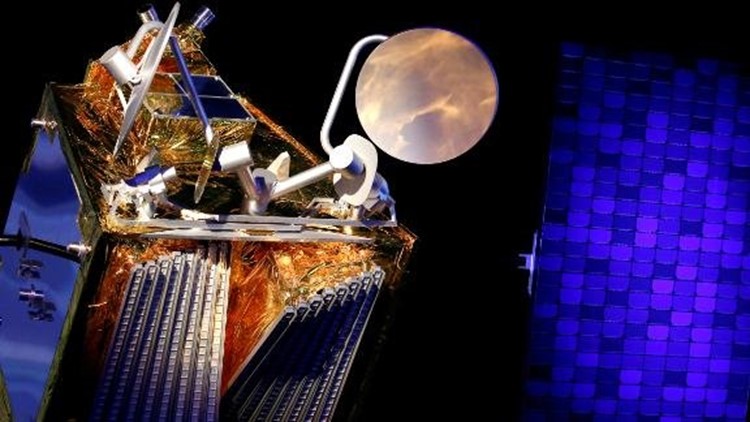For decades, companies have wanted to beam cheap, high-speed internet down to consumers from space. Some businesses have already tried and failed.
Virginia-based startup OneWeb just took a small step toward making it happen. The company — whose backers include SoftBank, Coca-Cola, Airbus and Virgin Group — launched its first batch of six satellites from French Guiana on Wednesday afternoon.
Over the next couple of years, OneWeb plans to keep launching batches of satellites until hundreds of them are in orbit.
The first internet service could come online in 2020. By 2021, OneWeb plans to offer the first global, “5G ready” internet coverage.
Analysts say OneWeb will be worth big bucks if it brings cheaper, faster broadband to new areas. But the company has competition and a long road ahead.
Billions of people around the world still lack high-speed internet access, particularly in areas that are difficult to reach with fiber optic cables or other wireless infrastructure.
Most options for space-based connectivity are expensive and have long lag times because they make use of hulking satellites that orbit more than 20,000 miles from Earth.
That’s why a few companies are racing to create large satellite constellations in low-Earth orbit that can deliver speedy broadband straight to consumers or businesses.
OneWeb says its constellation will be able to deliver 3G, LTE, 5G and Wi-Fi coverage anywhere on Earth, except Antarctica. That means it could create new community Wi-Fi systems, connect remote schools, emergency responders, and ships and airplanes while in transit.
CEO Adrián Steckel said OneWeb won’t necessarily compete with ground-based service providers.
“We can provide internet where others can’t reach,” he told CNN Business. “And as the cost of electronics are coming down, and people want more and more connectivity…there’s lots to do.”
Attempts to build such networks have failed before. But OneWeb — and SpaceX, which has a similar satellite constellation plan — say recent technological advancements will make their networks more efficient and cheaper to build.
Shagun Sachdeva, an analyst at Northern Sky Research, said in a recent note that OneWeb has accomplished a “significant feat” by raising nearly $2 billion from its deep-pocketed backers.
But OneWeb is about to enter the “valley of death,” as Sachdeva put it.
“This is the period when the start-up idea starts to move from conceptual phase to the implementation stages” when unforeseen costs and production challenges can start to pile up, Sachdeva said. She noted in an interview with CNN Business that mass producing internet satellites has never been done before.
Steckel, the OneWeb CEO, told CNN Business that the first six satellites will be a key proving ground for the network. The company and its manufacturing partner — a joint venture between OneWeb and Airbus — will refine the design over the next few months for mass production. They hope to be making at least one satellite per day by the end of 2019.
“It’s really revolutionary,” Steckel said. “It’ll be a total change in the way we’re building satellites…They’re the size of a big fridge with long arms.”
Northern Sky also estimates OneWeb will need about $5 billion to get its full network up and running, and it’ll take about a decade before its backers start to see a return on investment.
There are other challenges. As massive new satellite constellations enter low-Earth orbit, collision risks will become a serious issue. US regulators are already looking at updates to rules aimed at keeping space safe. But some experts predict the industry at large won’t take the problem seriously until disaster strikes.



